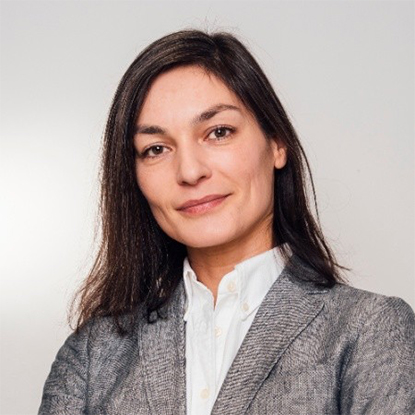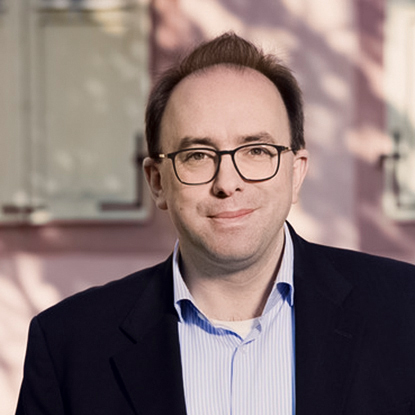-
![Foto vom S‑DALINAC Teilchenbeschleuniger an der TU Darmstadt]() Picture: Jan-Christoph Hartung
Picture: Jan-Christoph Hartung![Foto vom S‑DALINAC Teilchenbeschleuniger an der TU Darmstadt]() Picture: Jan-Christoph Hartung
Picture: Jan-Christoph HartungTechnological breakthrough in energy-efficient particle accelerators
2021/09/28
Successful experiment at TU Darmstadt
At Technische Universität Darmstadt, the world's first operation of a multi-turn superconducting linear accelerator with significant energy recovery succeeded. The experiment at the university's electron linear accelerator (S-DALINAC) proved that a substantial saving of accelerator power is possible.
-
![]() Bild: privat
Bild: privat![]() Bild: privat
Bild: privat„Ein Meilenstein der Fusionsforschung“
2021/08/18
Laserfusions-Experte Markus Roth über jüngsten Durchbruch und Perspektiven
Am Lawrence Livermore National Laboratory (LLNL) in Kalifornien ist in diesen Tagen ein Durchbruch in der Fusionsforschung geglückt. Erstmals konnte fast genau so viel Energie erzeugt werden, wie Laserenergie aufgewendet wurde – mehr als 1.300 Kilojoule. Professor Markus Roth, Physiker und Experte für Laserfusions-Forschung an der TU Darmstadt, hat am Bau des bei dem Experiment verwendeten Lasers mitgearbeitet und erläutert Hintergründe und Bedeutung des Forschungserfolgs für die Forschung und die weltweite Energiewirtschaft.
-
![Adrian Elter]() Picture: Olga Avrutina
Picture: Olga Avrutina![Adrian Elter]() Picture: Olga Avrutina
Picture: Olga AvrutinaSwitchable antibodies for cancer treatment
2021/08/18
Published in “Frontiers in Immunology”
Tremendous hope is being placed on the use of therapeutic antibodies in cancer treatment. Researchers at the TU Darmstadt and Merck have found a way to activate antibodies only on the tumour itself. This prevents unwanted side effects in healthy tissue. The results of this research have been published in the journal “Frontiers in Immunology”.
-
![]() Picture: TU Darmstadt
Picture: TU Darmstadt![]() Picture: TU Darmstadt
Picture: TU DarmstadtAdvantages of additive manufacturing
2021/07/16
Research results in “Advanced Functional Materials”
Additive Manufacturing (AM) of high performance permanent magnets becomes increasingly attractive as it enables many new applications where complex components with tailored magnetic flux density distribution are employed. The latest research results from a team at TU Darmstadt have just been published in the journal “Advanced Functional Materials”.
-
![Hände mit blauen Handschuhen halten eine Petrischale]() Bild: Katrin Binner
Bild: Katrin Binner![Hände mit blauen Handschuhen halten eine Petrischale]() Bild: Katrin Binner
Bild: Katrin BinnerInnovation und Mut werden belohnt
2021/07/13
Drei Forschungsprojekte der TU für neue Förderlinie „LOEWE-Exploration“ ausgewählt
Neue Arznei-Wirkstoffe, Digitale Textanalyse, Künstliche Intelligenz zur Klimabeobachtung: Gleich drei Projekte der TU Darmstadt werden über die neue Förderlinie „LOEWE-Exploration“ des hessischen Wissenschaftsministeriums zwei Jahre lang finanziell unterstützt. Insgesamt wurden zwölf innovative Forschungsansätze an Hochschulen ausgewählt, für sie stehen rund drei Millionen Euro bereit.
-
![Vergleich der emergenten chiralen Muster in einer Teilchen-basierten Simulation (links) und in der numerischen Lösung des kontinuierlichen Grenzfalles für unendlich viele Teilchen (rechts).]() Bild: BCS/ TU Darmstadt
Bild: BCS/ TU Darmstadt![Vergleich der emergenten chiralen Muster in einer Teilchen-basierten Simulation (links) und in der numerischen Lösung des kontinuierlichen Grenzfalles für unendlich viele Teilchen (rechts).]() Bild: BCS/ TU Darmstadt
Bild: BCS/ TU DarmstadtDie Muster des Lebens
2021/06/11
Der Mathematiker Nikita Kruk erforscht die Regeln, nach denen Schwärme entstehen
Dr. Nikita Kruk, der als Postdoc in der Forschungsgruppe Bioinspirierte Kommunikationssysteme an der TU Darmstadt arbeitet, ist davon fasziniert, welche oft außergewöhnlichen Wege biologische und andere natürliche Systeme finden, um untereinander zu kommunizieren und wie sie sich in verschiedensten Mustern organisieren. Im Interview erklärt er seine aktuelle Forschung zur Berechnung von Schwarm-Mustern.
-
![Marion Höfling in Laborumgebung beim Betrachten eines Einkristalls.]() Picture: Jurij Koruza
Picture: Jurij Koruza![Marion Höfling in Laborumgebung beim Betrachten eines Einkristalls.]() Picture: Jurij Koruza
Picture: Jurij KoruzaMechanically imprinting atoms in ceramic
2021/05/28
“Science” publication by researchers under the leadership of the TU Darmstadt
Electroceramics such as capacitors are essential components in electronic devices. Intervening in their crystalline structure can change specific properties. Thus, for instance, chemical methods can be used to replace individual atoms in the crystal lattice with others. A stable shape can be created by replacing a whole series of atoms rather than just a single one. An international team of researchers under the leadership of the TU Darmstadt has, for the first time, succeeded in inserting a dislocation into a ferroelectric ceramic by mechanically imprinting the atoms in the material – a procedure that hitherto has only ever been used in metals. The findings have been published in “Science”, the renowned journal.
-
![]() Picture: Anna Fritschen/TU Darmstadt
Picture: Anna Fritschen/TU Darmstadt![]() Picture: Anna Fritschen/TU Darmstadt
Picture: Anna Fritschen/TU DarmstadtCollaboration with Merck and Tufts University on Bioreactor Designs
2021/05/27
Printing process for food production
Merck, a leading science and technology company, has announced three-year collaborations with theTechnical University of Darmstadt and Tufts University, Massachusetts, USA. The partners want to conduct fundamental research on next-generation, scalable bioreactor designs to support industrial-scale meat and seafood manufacture. Tufts University enables the production of whole muscle cultured meat with textile bioengineering, TU Darmstadt will apply industrial printing technology for the production of textured meat.
-
![Nahaufnahme bei einem Lichtbogenschmelzverfahren]() Picture: Funktionale Materialien
Picture: Funktionale Materialien![Nahaufnahme bei einem Lichtbogenschmelzverfahren]() Picture: Funktionale Materialien
Picture: Funktionale MaterialienA way out of dependence on rare earths
2021/05/26
EU-funded project PASSENGER has started
Sustainable energy supply and clean a-mobility – this is impossible without high performance permanent magnets. They are key components for innovative technologies. They contain strategic materials like rare earth elements that are not naturally abundant in Europe. It is essential for Europe to find a way out of this critical dependence.
-
![Das Simulationsbild zeigt die Dichte von zwei Neutronensternen, die miteinander verschmolzen sind.]() Picture: L. Rezzolla, Goethe-Uni Frankfurt
Picture: L. Rezzolla, Goethe-Uni Frankfurt![Das Simulationsbild zeigt die Dichte von zwei Neutronensternen, die miteinander verschmolzen sind.]() Picture: L. Rezzolla, Goethe-Uni Frankfurt
Picture: L. Rezzolla, Goethe-Uni FrankfurtFrom heavy ion and neutron star collisions to the Big Bang
2021/05/25
Collaborative Research Centre Transregio 211 to be funded for another four years
The Collaborative Research Centre Transregio “Strongly Interacting Matter under Extreme Conditions”, a joint initiative of the Technical University of Darmstadt, Goethe University Frankfurt and Bielefeld University, has been investigating the most extreme states of matter found in the universe since July 2017. Now the German Research Foundation (DFG) is funding this Transregio (SFB-TRR) 211 for another four years with 8.9 million euros. The new spokesperson is Professor Guy Moore, nuclear physicist at TU Darmstadt. He takes over this function from Professor Dirk Rischke, who researches and teaches at Goethe University Frankfurt. The Transregio also strengthens the cooperation within the Strategic Alliance of Rhine-Main Universities (RMU), which Goethe University Frankfurt, TU Darmstadt, and Johann Gutenberg University Mainz formed in 2015.
Research Field M+M
Archive
Archive






















